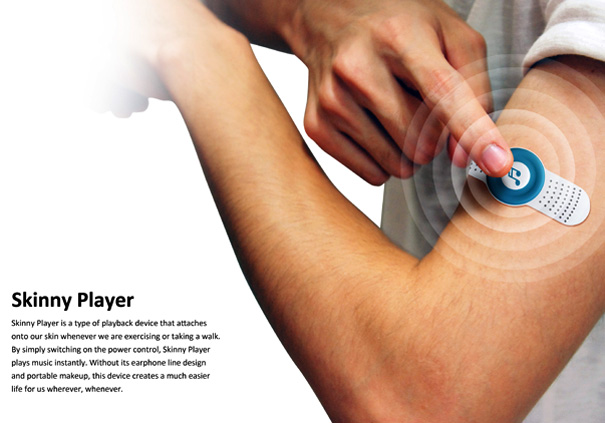Music, particularly pieces that contain crescendos or gradual increases in volume, elicits synchronized cardiovascular and respiratory responses in young people that are similar in both musicians and nonmusicians, according to new research.
It is well-known that music can elicit strong positive or negative emotions, but this new research shows that music is also linked to unconscious physiological responses, said the study's lead author, Luciano Bernardi, MD, professor of internal medicine at Pavia University, in Italy.
"Here we show, probably for the first time, that there is a continuous interaction between the music dynamics and our cardiovascular system, whether there are conscious emotions or not," Dr. Bernardi said in an interview.
These findings could have implications for the potential use of music as a therapeutic tool, he added. "We know now that music can affect the cardiovascular system, and if we understand how this works, then we can use it," he said.
The research was published online June 22 and in the June 30 issue of Circulation.
Operative Music
Researchers tracked the cardiovascular and respiratory profile of 24 healthy subjects aged 24 to 26 years old, of whom 12 were experienced choristers and 12 were age- and sex-matched controls with no musical training.
Health Care Education [Environmental health, Physical health, Social health, Emotional health, Intellectual health, and Spiritual health] The purpose of health education is to positively influence the health behavior of individuals as well as the living and working conditions that influence their health.
Showing posts with label Music. Show all posts
Showing posts with label Music. Show all posts
Mar 2, 2011
Jan 21, 2011
Digital Drugs- Latest drug trend
Forget about bongs, mirrors and crack pipes. Kids are getting high using headphones. Certain MP3 music downloads available online supposedly induce a state of ecstasy.
Dr Brian Fligor, director of diagnostic audiology at the Boston Children's Hospital, thinks the idea of digital drugs is as far-fetched as the plot of a horror film."I found it to be a somewhat amusing story”
"It's just kind of messing with your perception of the sound," Dr Fligor says.
"It's neat and interesting, but it has absolutely no effect on your perception of pleasure or anything else that was claimed."
The teens, he says, may have been faking or may have been experiencing a placebo effect, unconsciously convincing themselves that they were indeed high.
But doctors would find no real physical effects of this supposed intoxication, he says.
I-dosing, Dr Fligor says, is "neither good nor bad. It's completely neutral. It's not the least bit harmful and so I found it to be a somewhat amusing story."
Read more:
WBFF FOX45
http://news.discovery.com/tech/teens-get-high-off-digital-drugs.html
http://www.bbc.co.uk/news/world-us-canada-10668480
http://www.wired.com/threatlevel/2010/07/digital-drugs/
- This new practice is called i-Dosing and requires a pair of headphones and something to play music. Proponents of i-Dosing say the ecstatic feeling listeners supposedly feel is caused by the binaural beat effect.
- This effect is the result of two slightly different audio waves being heard separately by the left and right ear. The two tones played at slightly different frequencies makes the listener think they are hearing a quick beat.
- YouTube is littered with videos that include these audio files, and even more reaction videos of teenagers freaking out after getting an i-Dose.
- There is some research in the area of binaural beats for scientific and therapeutic uses, including research for hearing and sleep cycles and reducing stress and anxiety. But using it as a drug is new.
Dr Brian Fligor, director of diagnostic audiology at the Boston Children's Hospital, thinks the idea of digital drugs is as far-fetched as the plot of a horror film."I found it to be a somewhat amusing story”
"To my knowledge there is no science that backs it up," Dr Fligor told the BBC. "They are experiencing an auditory perception."
"It's just kind of messing with your perception of the sound," Dr Fligor says.
"It's neat and interesting, but it has absolutely no effect on your perception of pleasure or anything else that was claimed."
The teens, he says, may have been faking or may have been experiencing a placebo effect, unconsciously convincing themselves that they were indeed high.
But doctors would find no real physical effects of this supposed intoxication, he says.
I-dosing, Dr Fligor says, is "neither good nor bad. It's completely neutral. It's not the least bit harmful and so I found it to be a somewhat amusing story."
Read more:
WBFF FOX45
http://news.discovery.com/tech/teens-get-high-off-digital-drugs.html
http://www.bbc.co.uk/news/world-us-canada-10668480
http://www.wired.com/threatlevel/2010/07/digital-drugs/
Labels:
Binaural beats,
Digital Drugs,
Drugs,
I-Dosing,
Music,
Placebo,
Sounds
0
Comments
Dec 30, 2010
Band Aid Design -Skinny Player
The Skinny Player kinda reminds us of the O+ Music Campaign where the promotional kit offers one song in various mediums.
- The concept here with the Skinny Player is to offer one album space on a portable – Band Aid-esque device.
- The self-sticking player houses a play/stop button and flexible speakers. Although I am not so sure about the sound quality for the output, but the idea is worth exploring. The user-scenario is for exercise or such places where you want to keep your hands free, but still carry your music with you.
Labels:
AIDS,
Arts,
Band aid,
Digital audio player,
Multimedia,
Music,
Music and Audio,
Players
0
Comments
Subscribe to:
Posts (Atom)



